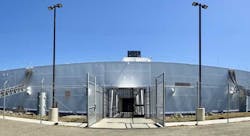Last week we launched an article series on the role that sustainability should play in the development and deployment of data centers. This week, we continue by looking at how data center sustainability can maximize ROI.
Get the full report
Sustainability and improving return on investment (ROI) go hand in hand, with many of the technologies and choices that improve sustainability also allowing you to build and operate a more efficient data center.
If you have an eye on metrics such as data center infrastructure efficiency (DCIE), you will, by default, improve the overall sustainability of your data center. Delivering the most efficient energy use possible to meet the IT demands for a specific data center also means you will be making a series of choices, starting with where the data center is located, giving your business the opportunity to minimize both CAPEX (capital expenditures) and OPEX (operating expenses)over the life of the data center.
Traditional data center operation techniques, such as data center infrastructure management (DCIM), will allow your data center to continue to meet the needs of your business while maintaining the operational efficiencies required to meet the sustainability demands.
The industry has changed, as has the expectation of data center lifespan. As we look at purpose-built data centers, edge data centers, micro data centers, ad infinitum, it’s easy to see why the answers shift according to the requirements.
Building for the future
If you ask the data center industry, “How long should I expect my data center to last?” you will receive answers generally spanning from 10 to 30 years. The industry has changed, as has the expectation of data center lifespan. As we look at purpose-built data centers, edge data centers, micro data centers, ad infinitum, it’s easy to see why the answers shift according to the requirements.
Hyperscalers and large enterprises building huge facilities plan to run their operations for the foreseeable future are investing in massive amounts of space and power. In these cases, they want their facilities to last as long as possible while deploying technologies simplifying day-to-day operations and equipment upgrades, effectively testing new approaches for IT workloads that migrate down to smaller facilities, allowing other types of data center operations to benefit.
From repurposing otherwise unattractive land to focusing on sustainable technologies in relation to the selected site, the overall impact of this approach will increase your flexibility in location selection, offer up previously unconsidered site options, and allow you to explore cutting-edge technologies to provide resources for your new data center.
For the rest of us, we are looking at data centers serving particular segments. While we have many more choices in the where and why of these smaller data centers and still focus on an extended life span, there is significantly more flexibility in the location choices that can be made for these facilities.
Consider the choice of where to put an edge data center. Generally, the focus will be on a site as close as possible to the user/customer base. But because a vast data center campus isn’t required, the site selection criteria can be significantly broader while still being able to focus on the issues that are driving the business needs.
No matter the size of the site, putting sustainability front and center in your site selection process isn’t going to be a limiting factor. In fact, the benefits derived from making your selection based on sustainability as a primary criterion can deliver long-term benefits to your data center and your overall business ROI. From repurposing otherwise unattractive land to focusing on sustainable technologies in relation to the selected site, the overall impact of this approach will increase your flexibility in location selection, offer up previously unconsidered site options, and allow you to explore cutting-edge technologies to provide resources for your new data center.
Download the entire paper, “Sustainability in Data Center Site Selection“ courtesy of Nautilus Data Technologies, to learn more. In our next article, we’ll explore how a sustainability focus might impact your choices around power and connectivity.
About the Author



